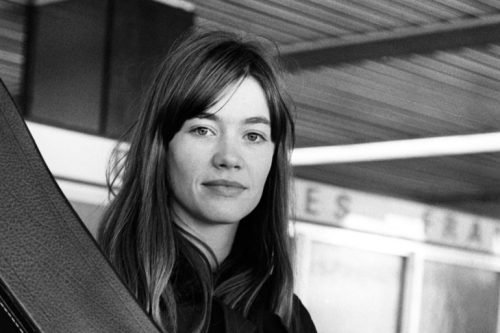The music world mourns the loss of Françoise Hardy, a legendary French singer-songwriter whose influence spanned decades. Born on January 17, 1944, and passing on June 11, 2024, Hardy’s career left an indelible mark on the chanson genre and beyond. Her soulful voice and introspective lyrics captivated audiences from the 1960s onward, establishing her as an icon of French pop music. Notable achievements include her timeless hit “Tous les garçons et les filles” and her pioneering role in blending French pop with elements of folk, rock, and jazz. Hardy’s music not only defined an era but also inspired countless artists, cementing her legacy as a pivotal figure in the music industry.
Early Life and Career Beginnings
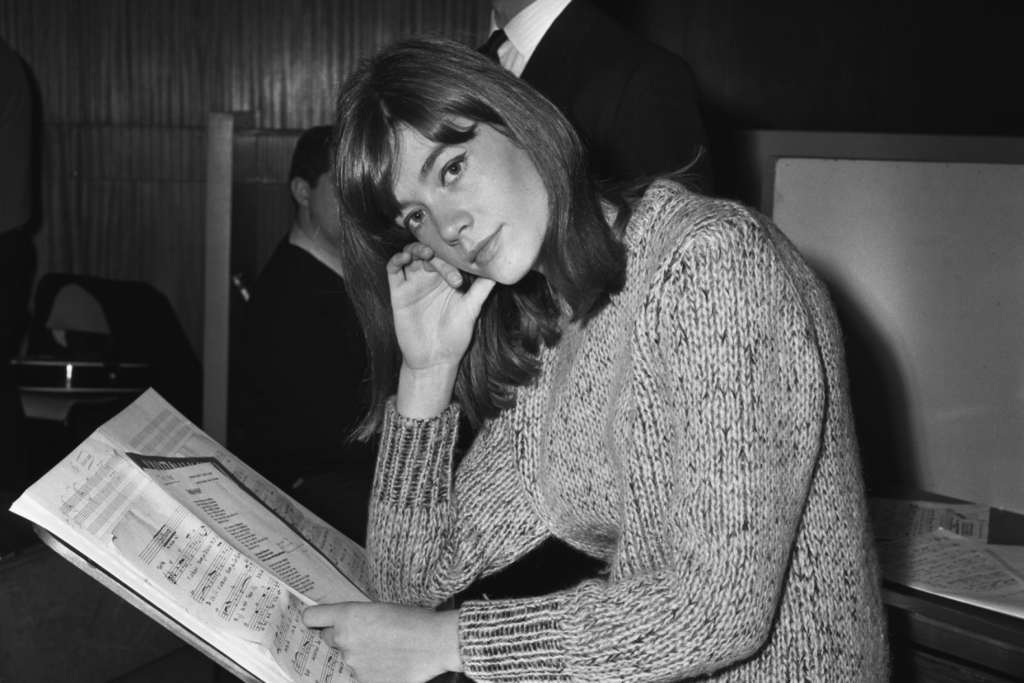
Born in Paris on January 17, 1944, Françoise Hardy grew up in a post-war France that was rebuilding itself. Raised by a single mother in the 9th arrondissement, her childhood was marked by a sense of solitude, which she often described as formative in her emotional and artistic development. Music became her solace, with early influences ranging from the classical compositions her mother loved to the burgeoning rock ‘n’ roll scene of the 1950s. Artists like Elvis Presley and French chanson singers like Charles Trenet and Édith Piaf shaped her musical tastes and aspirations.
Hardy’s entry into the music industry was serendipitous. After receiving a guitar as a reward for passing her baccalauréat, she began writing songs and performing at small venues. Her big break came in 1961 when she auditioned for the French record label Disques Vogue. Her natural talent and unique voice quickly impressed the label executives, leading to the release of her debut single, “Tous les garçons et les filles,” in 1962. The song became an instant hit, selling millions of copies and propelling Hardy to national stardom. This success marked the beginning of a prolific career, as she continued to produce music that resonated deeply with audiences both in France and internationally.
Rise to Fame
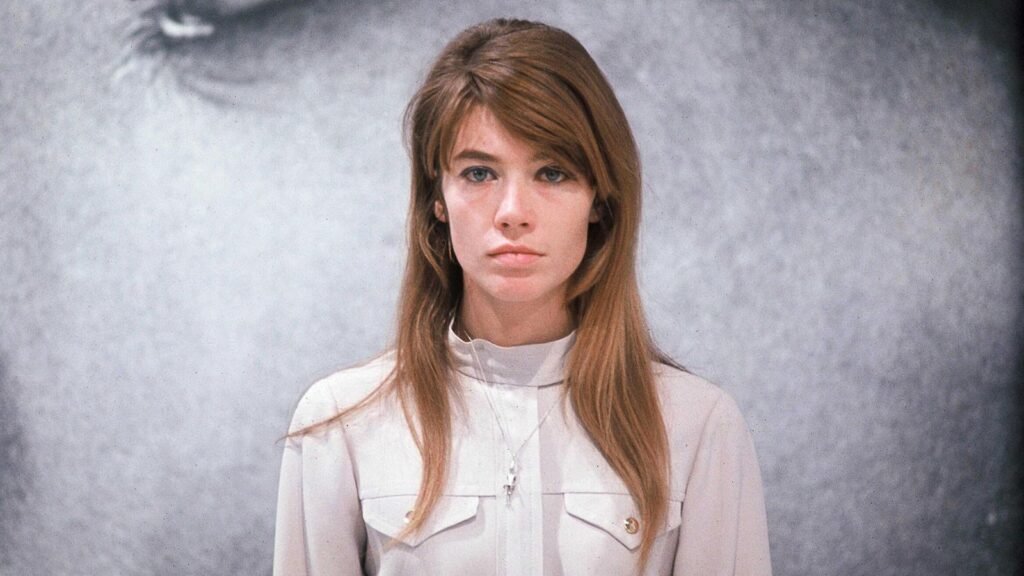
Françoise Hardy’s ascent to fame was marked by a series of significant albums, songs, and performances that captivated the world. Her debut album, Tous les garçons et les filles (1962), not only featured the eponymous hit single but also showcased her distinctive voice and introspective songwriting. This album laid the groundwork for her career, blending melancholic lyrics with catchy melodies, and quickly became a defining record of the yé-yé movement.
Throughout the 1960s and 1970s, Hardy released several acclaimed albums that solidified her status as a musical icon. Mon amie la rose (1964), with its haunting title track, and Comment te dire adieu (1968), featuring the titular song written by Serge Gainsbourg, were particularly influential. Her collaborations with Gainsbourg and other prominent songwriters expanded her musical repertoire, incorporating elements of folk, rock, and jazz into her work.
Hardy’s critical and commercial success was underscored by numerous awards and accolades. She received the Grand Prix du Disque from the Académie Charles Cros for her contributions to French music and consistently topped charts in France and other European countries. Her albums frequently achieved gold and platinum status, with singles like “Le temps de l’amour” and “Message personnel” becoming timeless classics.
Signature Style
Françoise Hardy’s signature style was characterized by her ethereal voice, poetic lyrics, and a sophisticated blend of musical genres. She brought a unique sensibility to the yé-yé movement, infusing it with emotional depth and introspection. Her ability to seamlessly integrate folk influences and her experimentation with different musical styles set her apart from her contemporaries. Hardy’s influence extended beyond music; her chic, understated fashion sense made her a style icon of the 1960s, further cementing her legacy as a cultural figure.
Her innovative approach to songwriting and her willingness to explore new musical landscapes contributed significantly to the evolution of French pop music. Hardy’s introspective and often autobiographical lyrics resonated deeply with listeners, allowing her to forge a profound connection with her audience. Her work continues to inspire and influence artists across genres, affirming her enduring impact on the music industry.
Peak of Career
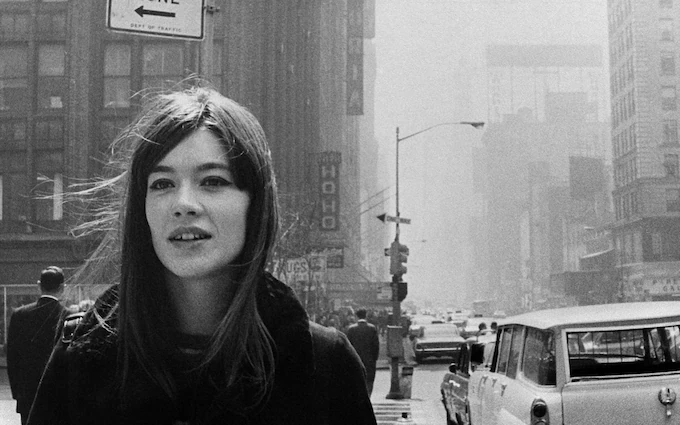
Françoise Hardy reached the zenith of her career in the late 1960s and 1970s, producing a series of influential albums and songs that have left an indelible mark on the music world. One of her most celebrated albums, La Question (1971), exemplifies her artistic peak. This album, a collaboration with Brazilian guitarist Tuca, showcased a more intimate and introspective sound, blending French pop with bossa nova influences. Tracks like “La Question” and “Doigts” highlighted Hardy’s lyrical depth and sophisticated musical arrangements, earning critical acclaim and solidifying her status as a pioneering artist.
Another landmark album, Message Personnel (1973), featured the eponymous track written by Michel Berger. This album marked a shift towards a more polished, orchestral pop sound and included standout songs like “Première rencontre” and “Je suis moi.” Hardy’s ability to evolve her sound while maintaining her distinct lyrical voice ensured her continued relevance in an ever-changing music landscape.
Collaborations played a significant role in Hardy’s career during this period. Her work with Serge Gainsbourg on songs like “Comment te dire adieu” brought a provocative edge to her repertoire. Gainsbourg’s clever wordplay and Hardy’s emotive delivery created a perfect synergy, producing some of her most memorable tracks. Additionally, her partnership with Tuca on La Question not only enriched her musical palette but also introduced her to a wider international audience.
Live Performances
Hardy’s live performances and tours during her career peak were equally memorable. Her concerts at prestigious venues such as the Olympia in Paris were notable for their intimate atmosphere and emotional resonance. She also performed extensively across Europe, captivating audiences with her understated stage presence and haunting vocals. Her 1974 concert at the Royal Albert Hall in London is often cited as one of her most iconic performances, showcasing her ability to connect deeply with audiences through her music.
Despite her aversion to the limelight, Hardy’s live shows were known for their authenticity and emotional depth. She often eschewed elaborate stage setups in favor of a minimalist approach, allowing her voice and songs to take center stage. This approach resonated with fans, who appreciated the raw and unfiltered experience of her performances.
Legacy and Influence
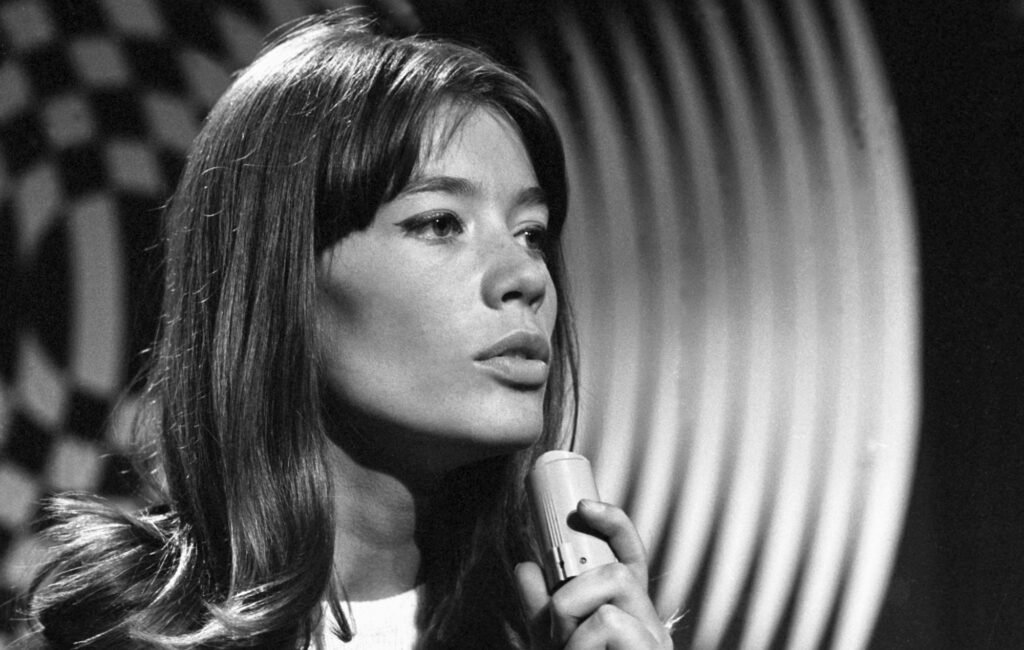
Françoise Hardy’s impact on music and culture is profound and far-reaching, making her an enduring figure in the industry and beyond. Her influence on other artists and the broader music landscape is evident through the myriad musicians who cite her as an inspiration. Hardy’s introspective songwriting, distinctive voice, and innovative blending of genres have left an indelible mark on contemporary music.
Impact on Music
Hardy’s pioneering approach to integrating folk, rock, and bossa nova into French pop music set a new standard for versatility and artistic expression. Her introspective lyrics and emotive delivery resonated deeply with artists across genres. Musicians such as Bob Dylan, who admired her poetic lyricism, and contemporary artists like Cat Power and Lana Del Rey have acknowledged Hardy’s influence on their own work. Her ability to craft songs that were both deeply personal and universally relatable has inspired countless songwriters to explore similar themes in their music.
Moreover, Hardy’s collaborations with notable figures like Serge Gainsbourg and Tuca expanded her musical reach and introduced innovative sounds to her audience. Her willingness to experiment with different styles and sounds paved the way for future generations of artists to push the boundaries of their music. Hardy’s legacy is evident in the continued reverence for her albums and the frequent covers of her songs by artists seeking to capture the same emotional depth and lyrical sophistication.
Cultural Impact
Beyond her musical achievements, Françoise Hardy played a significant role in shaping cultural movements and societal trends. As a style icon of the 1960s, her chic and understated fashion sense influenced fashion trends worldwide. Hardy’s effortless elegance, often seen in her iconic mod dresses and minimalist aesthetic, became synonymous with the French chic that defined the era. Her image was regularly featured in fashion magazines, and she inspired designers and fashion enthusiasts alike.
Hardy’s cultural impact extended to her role as a voice for a generation. In a time when the music industry was dominated by male voices, she provided a female perspective that resonated with many young women. Her songs often explored themes of love, longing, and introspection, offering a nuanced portrayal of the female experience. This empowered many women to express their own emotions and stories through music and other forms of art.
Additionally, Hardy’s introspective and often melancholic songs mirrored the existential sentiments of the 1960s and 1970s, aligning with the broader cultural movements of the time. Her music provided a soundtrack for the era’s exploration of self-identity and emotional depth, influencing not just other musicians but also writers, filmmakers, and artists.
Rest in Peace Françoise
Françoise Hardy’s passing leaves a profound void in the world of music and beyond. Her unparalleled talent, from her evocative songwriting to her timeless voice, has left an indelible mark on generations of artists and listeners. Hardy’s unique blend of genres, combined with her elegant style and poignant introspection, influenced not only the music industry but also fashion and cultural movements. As we mourn her loss, we celebrate her extraordinary legacy, grateful for the beautiful and transformative contributions she made to our lives. Rest in peace, Françoise Hardy. Your music will forever echo in our hearts.
